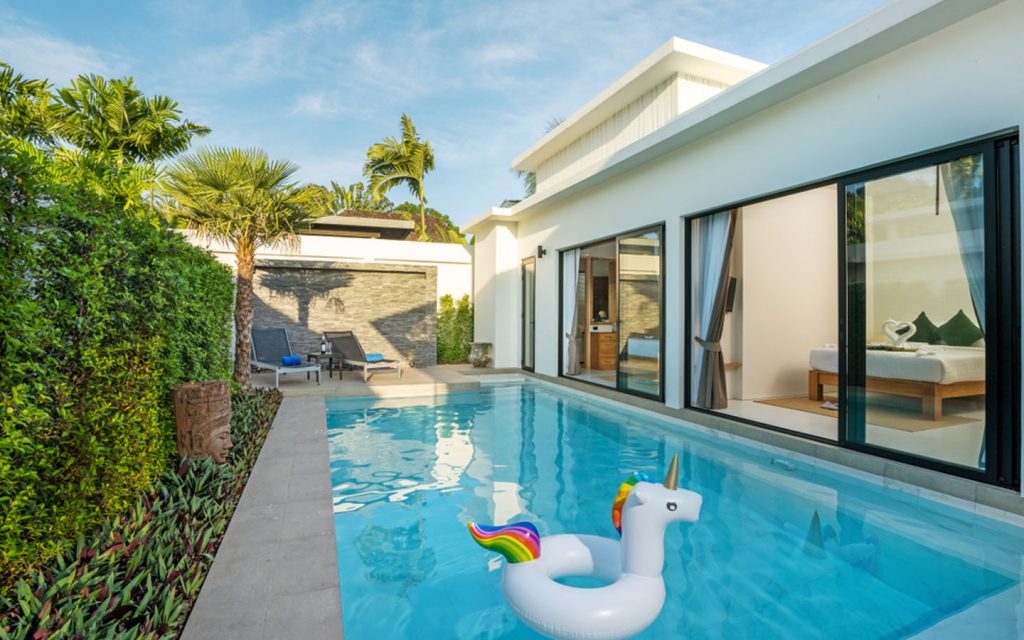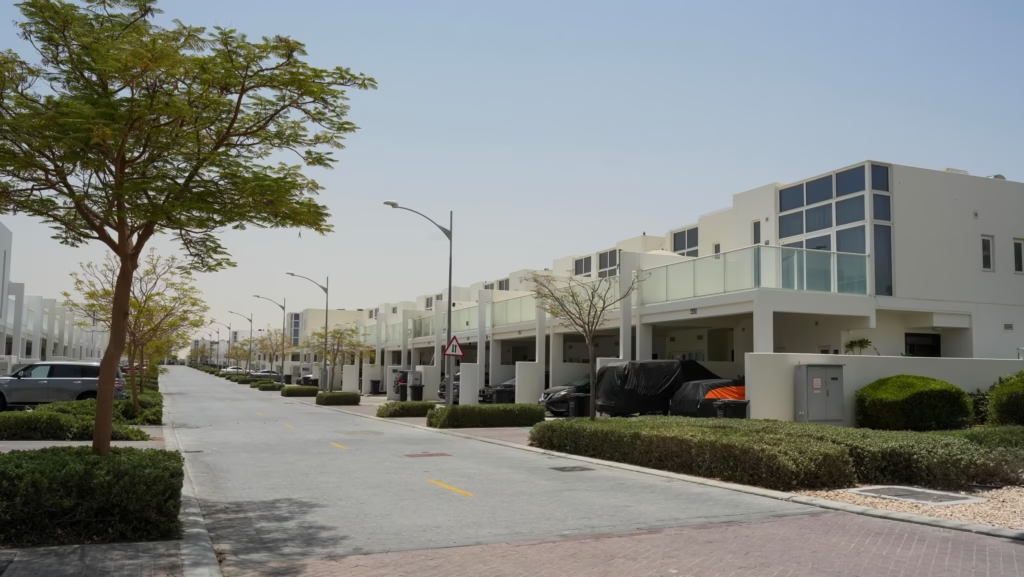UAE rental villa as office is a question that many tenants and entrepreneurs are asking today. The rise of remote working, freelancing, and small-scale entrepreneurship has blurred the lines between living spaces and workspaces. More people are wondering whether their spacious villas can double up as temporary offices.
On the surface, the idea makes sense. A villa provides privacy, comfort, and enough room for a desk, meeting corner, and even a small team. For startups and independent consultants, it sounds like the perfect way to save on commercial rent while staying productive.
However, the reality is not that simple. Villas are rented under residential tenancy agreements, and converting them into offices without proper permissions may violate laws, tenancy contracts, and municipal rules. That is why it is essential to look at this question carefully before taking action.

In this article, we explore the rules, risks, benefits, and practical steps involved in using a rental villa as a temporary office in the UAE.
Why Tenants Consider Using Villas as Offices
Across Dubai, Abu Dhabi, Sharjah, and other emirates, rental villas are popular among families and professionals. But beyond their residential use, villas attract interest from freelancers, consultants, and small business owners as potential office spaces.

Here is why many tenants think about using their villas for work:
• High commercial rents. Office space in major UAE business districts can be expensive, especially for startups and small firms.
• Unused space in villas. Many villas have spare rooms, basements, or annexes that often go unused.
• Convenience. Working from home eliminates commuting and allows flexible work hours.
• Privacy. Villas provide a more private environment compared to coworking spaces.
• Post pandemic shift. Remote work accelerated after global events, encouraging people to adapt their homes as workplaces.
• Entrepreneurial culture. The UAE has a thriving startup ecosystem, and many founders look for cost efficient ways to run their operations.
These reasons make the idea of a villa office attractive. But what do the rules say?
The Legal Landscape
Using a UAE rental villa as office requires careful understanding of tenancy agreements and municipal regulations. In the UAE, properties are clearly categorized as residential or commercial. A tenant cannot simply decide to use a residential villa for business activities without proper approvals.
Tenancy Agreements
Most tenancy contracts in the UAE specify that the villa is for residential purposes only. Violating this condition can give the landlord the right to terminate the contract. Even if no clients visit and no signage is displayed, the landlord may object to commercial use.
Municipality Rules
Each emirate has its own municipal body responsible for zoning and property use. Residential zones are strictly regulated, and commercial activities are not usually allowed in them. Municipalities have the authority to fine tenants and even issue eviction orders if a villa is misused.
Licensing and Registration
Operating a business in the UAE requires a trade license. For mainland businesses, licenses often require a commercial office address. Free zones offer more flexibility and may allow license holders to work from home, but this still depends on the nature of the business.
Landlord Approval
Even if regulations permit certain types of home-based business, tenants must always secure the landlord’s written consent. Without this approval, they risk violating the rental contract.

When It Is Allowed to Use a Villa as an Office
While the general rule is that villas are residential properties, there are situations where limited business use may be permitted.
• Remote employees. If you are working remotely for a company based elsewhere, you can work from your villa without issue, since you are not turning the property into a commercial hub.
• Freelancers. Certain free zones in the UAE issue freelancer permits that allow licensed professionals to operate from home.
• Consultancy and creative services. Occupations such as writing, graphic design, digital marketing, or IT services may be carried out from home with proper licensing.
• Temporary arrangements. During emergencies or special circumstances, authorities may allow temporary home-based work arrangements.
However, hosting clients, displaying business signage, or using the villa as a shop, clinic, or storage facility is generally prohibited without special permits.
The Risks of Unauthorized Use
Using a UAE rental villa as office without permission carries significant risks. While the setup may seem harmless at first, the consequences of being caught can be serious.
• Fines. Municipalities can impose fines on tenants who misuse residential properties.
• Eviction. Landlords may terminate tenancy contracts if villas are used for commercial purposes.
• Legal disputes. Tenants may face legal action if landlords or authorities pursue the matter in court.
• Business credibility. Running an unlicensed business from home can damage reputation and trust with clients.
• Insurance problems. Residential insurance policies may not cover damages if the villa is being used for business purposes.
Benefits of a Villa Office If Legal
When done within the law, a villa office offers many practical benefits.
• Cost savings. Reduces the need for commercial rent and long-term leases.
• Work life balance. Eliminates commuting and provides more control over working hours.
• Comfort. Villas are spacious and private, ideal for setting up a professional workspace.
• Startup support. Entrepreneurs can test business ideas without heavy investments in office rentals.
• Hybrid model. Teams can combine villa-based work with flexible coworking or commercial office use.
How to Use Your Villa Legally as an Office
If you want to avoid risks, follow these steps before turning your villa into an office.
- Review your contract. Check for clauses that restrict non-residential use.
- Get landlord consent. Always obtain written approval before making changes.
- Check municipal laws. Contact your local municipality for zoning rules.
- Apply for licenses. If your business requires a license, apply through free zones or mainland authorities.
- Stay within limits. Keep the villa as primarily residential and avoid large client gatherings or commercial activities.
- Consider shared solutions. Use coworking spaces for meetings while working daily from your villa.

Alternatives to Using a Villa as an Office
If converting your villa into an office is not allowed, several alternatives are available.
• Coworking spaces. Affordable, flexible, and equipped with professional amenities.
• Business centers. Provide fully furnished offices with short-term leases.
• Virtual offices. Allow businesses to use a commercial address without occupying physical space.
• Shared work hubs. Cater to freelancers, startups, and small teams.
These options help you stay compliant while keeping costs manageable.
The Future of Home Based Work in the UAE
The UAE government has shown growing support for freelancers and startups. Free zones now offer flexible licensing options, and remote work has become more common. While strict zoning laws remain in place, the trend suggests that future policies may adapt to support hybrid work models.
Developers may also design new villas with built-in office zones to meet the needs of modern professionals. Over time, residents might see clearer guidelines and more flexibility when it comes to blending home and work.
Expert Perspective
Real estate professionals often advise tenants to be cautious. They note that while it is possible to work quietly from home as a freelancer, running a full-fledged office without approvals can lead to trouble. Legal experts emphasize that following proper licensing and obtaining landlord consent are the safest paths.
Business advisors also point out that hybrid solutions combining home offices with virtual or coworking setups are becoming popular among entrepreneurs who want flexibility without legal risks.
Conclusion
The question of whether you can use a UAE rental villa as office depends on many factors including tenancy agreements, municipal rules, licensing requirements, and landlord consent.
For remote employees and freelancers with proper permits, villas can be convenient and cost-effective workplaces. But for commercial businesses, retail setups, or offices that host clients, using a villa without authorization is risky and often illegal.
The safest approach is to respect tenancy contracts, consult authorities, and secure approvals before making any move. Alternatives like coworking spaces and virtual offices provide compliant options for those who need professional setups.
Ultimately, a villa can indeed be part of your work life balance provided you follow the rules. Done correctly, it can offer the perfect blend of comfort, cost savings, and productivity without running into trouble with landlords or authorities.
Do follow UAE Stories on Instagram
Read Next – Syria Kurdish Autonomy Strengthens as Al Sharaa’s Push for Control Falters














